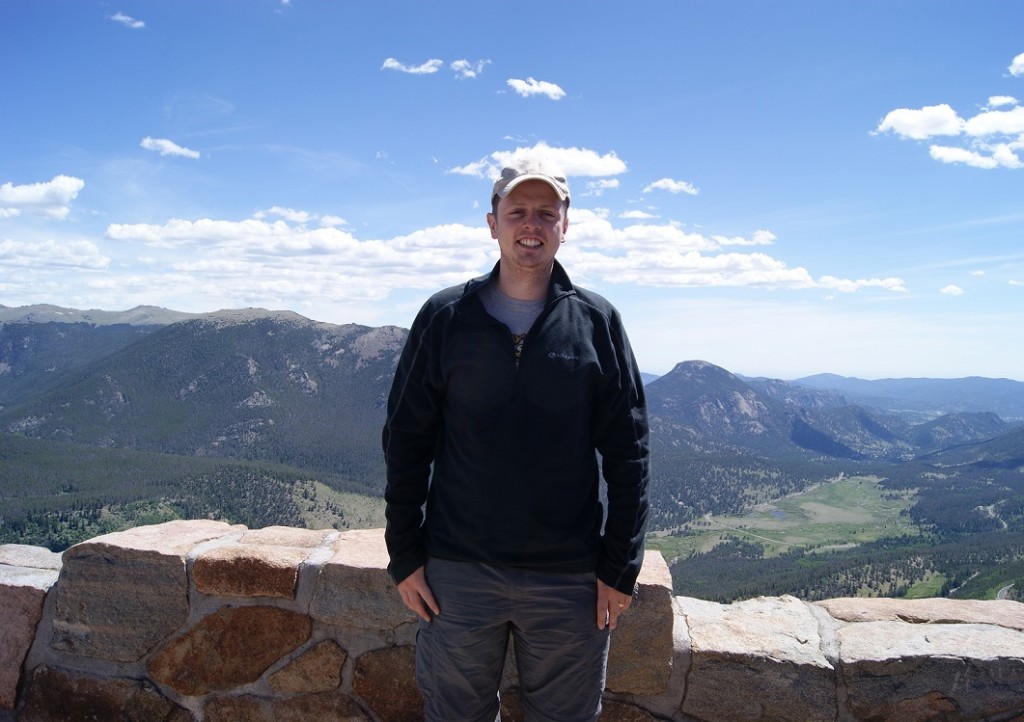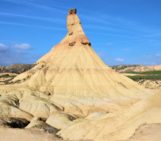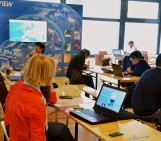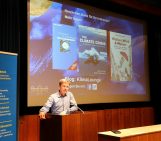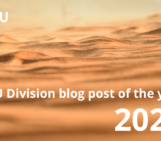This week in GeoTalk, we’re talking to Will Morgan, atmospheric scientist, podcaster and the blogger behind Polluting the Internet…
You recently joined the EGU blog network, but you’ve been writing for a while now. What got you blogging?
I guess the ultimate reason is that I enjoy talking about science! I’ve been involved with a number of science communication activities for a few years and blogging is a very popular medium that I wanted to try out. I’ve read scientific blogs since my undergraduate days but the number and range of sites has exploded in recent years. I felt that I would be able to contribute to this and cover aspects that don’t always get as much attention. Aerosol particles might be tiny but they can have big impacts and we have a lot to learn about how they affect our climate and our health.
There’s a wealth of great research out there, how do you choose what to write about?
Mainly through a combination of Twitter, RSS feeds for journals in my field and whatever I happen to be doing that week. Twitter is great for getting ideas, whether that is a new study that has been getting attention in the media or just some spectacular satellite images that routinely appear in your timeline. Scientific conferences are also really helpful for getting ideas as you can cover something “new” that emerges while you are there.
In addition to your science blogging activities, you also run a podcast, together with a host of atmospheric scientists. How did you get started?
As with many ideas in science, the podcast started out with a discussion in a pub. A couple of friends in the atmospheric science group at Manchester thought “wouldn’t it be fun to do an atmospheric science podcast”. They talked to a few of us in the research group and we started getting together to record some episodes and it has continued from there.
You do a lot of podcasting and blogging at conferences and other scientific events, what would you say are the biggest benefits to the public or wider scientific community?
I think it helps to give people an idea of how the process of science actually works – most of the time people see scientists as a talking head on the TV or a few quotes in an article. I’ve found covering conferences a lot of fun as they are often very vibrant affairs with lots of ideas whirling around between groups of passionate people, which maybe isn’t the picture that is usually painted of scientists! I/we have also covered how we go about making measurements in the field, which communicates the challenges of actually doing science and the dedication that is required to do things well. People seem to enjoy listening or reading to these things also, so catering to that audience is really important.
Do you have any tips for people pondering podcasting?
The main tip is to just get on with it and not worry if it doesn’t sound perfect. Most modern mobile phones have the capability to record audio so you can give it a try and put it online (there several free services, such as Podbean for podcasting online). It isn’t going to have the audio quality of a BBC Radio 4 broadcast but that is secondary to the actual content. From there you can develop where you want to go with the podcast and if funds and/or facilities allow, you can get access to better recording equipment or even a studio. Also, the more you do it, the better you get. My only other tip is to not spend too long listening to recordings of your own voice when editing (ideally edit content that you weren’t involved with) as you’ll quickly develop a complex – it was a bit of a shock when I realised that the booming Brian Blessed-esque voice was my own!
Want to know more about what Will’s been up to? Have a read: https://blogs.egu.eu/hazeblog/

